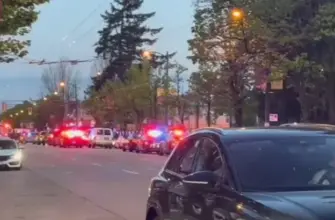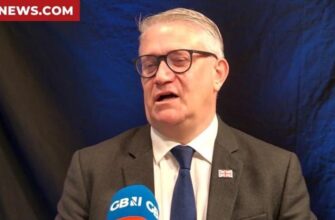Tahawwur Rana, a 64-year-old man, has been apprehended by Indian authorities upon his arrival in Delhi from Los Angeles, United States. The National Investigation Agency (NIA) took him into custody after he disembarked from the flight and it is anticipated that he will be transferred to their headquarters following standard procedures, followed by a presentation before the Patiala House court in Delhi.
Sources indicate that Rana may subsequently be held at Tihar Jail, a high-security facility in Delhi, with potential relocation to Mumbai where his trial is expected to take place. He faces serious charges including criminal conspiracy, attempting to wage war against India, murder, forgery, and violations of the Unlawful Activities (Prevention) Act.
The extradition process was preceded by crucial consultations involving Union Home Minister Amit Shah, Foreign Minister S Jaishankar, and National Security Advisor Ajit Doval. Amit Shah lauded the event as a “significant achievement of Prime Minister Narendra Modi’s diplomatic efforts.”
This handover occurred two months after US President Donald Trump, during a visit by Prime Minister Modi, announced his administration’s approval of Rana’s extradition, describing him as a “very evil” individual who would now “face justice in India.”
Rana, a Canadian citizen of Pakistani origin residing in Chicago, is implicated in providing vital support for the devastating 2008 attacks that shook Mumbai and resulted in 166 fatalities. David Coleman Headley, the chief perpetrator of the attack, testified that Rana furnished both logistical and financial backing to the operation.
The chargesheet details how Rana allegedly assisted Headley in various ways, notably by establishing an Immigrant Law Centre in Mumbai. Headley utilized this firm as a guise while conducting reconnaissance trips across several Indian cities including Delhi, Jaipur, Pushkar, Goa, and Pune. Rana himself visited India in November 2008.
Prior to his extradition, Rana was arrested in Chicago in October 2009 by the Federal Bureau of Investigation (FBI) for allegedly supporting a thwarted plot to attack a Danish newspaper and providing support to Lashkar-e-Taiba, the Pakistan-based terrorist group responsible for the Mumbai attacks. He was subsequently convicted on these charges two years later.
Rana vigorously contested his extradition, citing serious health concerns including an abdominal aortic aneurysm at risk of rupture, Parkinson’s disease with cognitive decline, and potential bladder cancer. However, US courts rejected his appeals, clearing the path for his return to India.
The 2008 attacks, lasting three days, targeted key locations in Mumbai – hotels, a train station, and the Chabad House, a Jewish community center. Indian authorities have attributed responsibility for these attacks to Lashkar-e-Taiba. Out of the ten terrorists involved, only one, Ajmal Kasab, was captured alive and executed on November 21, 2012.
As stated by officials: “The extradition marks a significant step in bringing those responsible for the Mumbai attacks to justice.”



